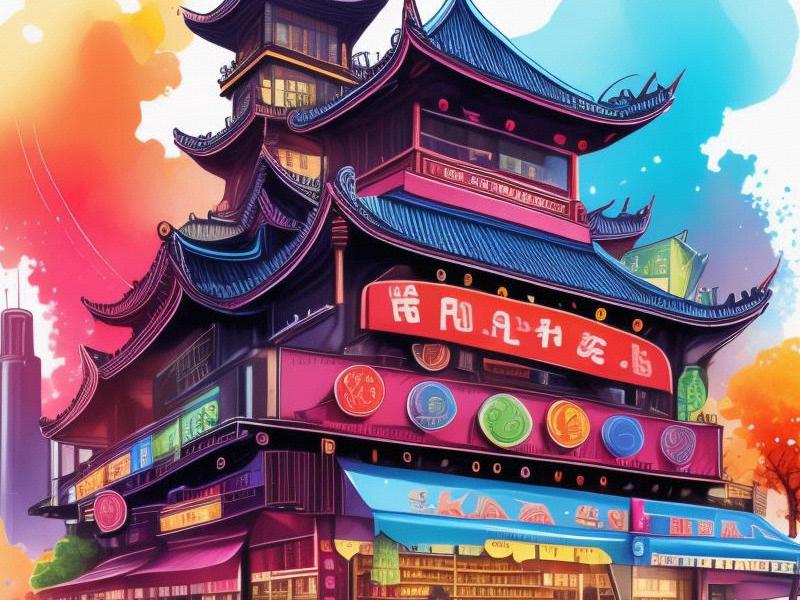This article delves into the vibrant world of Shanghai's entertainment clubs, exploring their profound impact on the city's culture, economy, and social fabric. It examines how these establishments have evolved over time, adapting to the changing dynamics of urban life while maintaining their unique appeal.

In the heart of Shanghai, where the neon lights flicker and the hum of the city never ceases, entertainment clubs stand as iconic symbols of the city's dynamic nightlife. These establishments, ranging from high-end lounges to underground music venues, have become more than just places to party; they are cultural hubs that reflect and shape the spirit of modern Shanghai.
The history of Shanghai's entertainment clubs dates back to the early 20th century, during the city's heyday as a global metropolis. The French Concession, in particular, was known for its cabarets and dance halls, which attracted a mix of Chinese and foreign patrons. These venues were not only places of leisure but also melting pots of cultures, where jazz bands played, and fashion trends were set.
Fast forward to today, and Shanghai's entertainment scene has undergone a remarkable transformation. The city has embraced globalization, and its clubs have become more diverse and sophisticated. High-end clubs like Bar Rouge and M1NT offer a luxurious experience, complete with world-class DJs, gourmet dining, and stunning views of the city skyline. These establishments cater to an international clientele, blending Eastern and Western influences to crteeaa unique nightlife experience.
However, it's not just the high-end clubs that define Shanghai's entertainment scene. The city is also home to a vibrant underground music culture, with countless bars and venues hosting live music performances. From jazz and rock to electronic and hip-hop, these venues provide a platform for local musicians and bands to showcase their talent. They are often the breeding grounds for the next big music sensation, contributing to the city's reputation as a cultural capital.
上海龙凤419手机 The impact of Shanghai's entertainment clubs extends beyond the nightlife itself. They play a significant role in the city's economy, generating revenue through ticket sales, drink purchases, and other services. The clubs also attract tourists, who come to experience the city's vibrant nightlife and contribute to the local economy. In addition, the entertainment industry associated with these clubs creates numerous job opportunities, from DJs and bartenders to event planners and security personnel.
Culturally, Shanghai's entertainment clubs are a reflection of the city's dynamic and cosmopolitan nature. They serve as spaces where people from different backgrounds come together to celebrate life and express themselves. The clubs are also influential in shaping fashion trends, with patrons often seen sporting the latest styles and accessories. The music played in these venues often sets the tone for the city's cultural scene, introducing new genres and artists to the public.
However, the rapid growth of Shanghai's entertainment industry has not been without challenges. The city's government has implemented regulations to ensure that clubs operate within the bounds of the law, addressing issues such as noise pollution, overcrowding, and safety concerns. These regulations aim to strike a balance between preserving the city's vibrant nightlife and maintaining public order.
One of the most significant challenges faced by Shanghai's entertainment clubs is the need to adapt to changing consumer preferences. As the city's population becomes increasingly diverse, clubs must cater to a wide range of tastes and interests. This has led to the emergence of niche venues that focus on specific genres of music or themes, such as jazz bars, karaoke lounges, and themed nightclubs.
上海龙凤419
Technology has also played a crucial role in shaping the entertainment landscape of Shanghai. The rise of social media platforms has allowed clubs to promote their events and engage with their audience in new and innovative ways. DJs and performers can now reach a global audience through live streaming, while clubs can use social media to build their brand and attract new patrons.
Despite these challenges, Shanghai's entertainment clubs continue to thrive, evolving to meet the needs of a changing city. They remain a vital part of the city's cultural and economic fabric, contributing to its reputation as a global hub for nightlife and entertainment.
The influence of Shanghai's entertainment clubs can also be seen in the broader cultural landscape of China. As the country's economy continues to grow, so too does its appetite for entertainment and leisure activities. Shanghai's clubs serve as a model for other cities, demonstrating how nightlife can be integrated into urban development and cultural preservation.
上海私人外卖工作室联系方式 Moreover, the clubs have become a source of inspiration for artists, designers, and musicians. The vibrant atmosphere and creative energy of these venues often spark new ideas and collaborations. From fashion shows to art exhibitions, the influence of Shanghai's entertainment clubs can be seen in various aspects of the city's cultural scene.
In conclusion, Shanghai's entertainment clubs are more than just places to party; they are cultural landmarks that reflect the city's dynamic and cosmopolitan nature. They play a significant role in the city's economy, shaping its cultural landscape and influencing the broader entertainment industry in China. As Shanghai continues to evolve, its entertainment clubs will undoubtedly remain at the forefront of the city's nightlife, adapting to change while preserving their unique appeal.
The impact of Shanghai's entertainment clubs extends beyond the city limits, attracting international attention and setting trends that resonate around the globe. They are a testament to the city's ability to blend tradition with modernity, creating a vibrant and inclusive nightlife experience that celebrates the diversity of its people.
As we look to the future, it is clear that Shanghai's entertainment clubs will continue to play a vital role in the city's cultural and economic development. They will remain a source of inspiration for artists, a hub for social interaction, and a symbol of the city's enduring spirit. In the ever-changing world of Shanghai, the entertainment clubs stand as a constant reminder of the city's ability to adapt, innovate, and thrive.